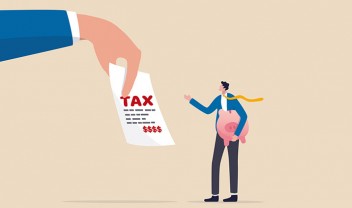News / Monthly Tax Update - January/ February 2025
Monthly Tax Update - January/ February 2025
01STFEB 2025


CGT withholding measures now law
The Government recently passed legislation making changes to the foreign resident capital gains withholding laws (among other changes).
Editor: Foreign resident capital gains withholding is relevant for all vendors selling certain taxable real property (e.g., Australian land).
Even Australian residents can be caught by these laws because, if they do not have a valid 'clearance certificate' issued by the ATO at, or before settlement, tax must be withheld from the sale proceeds by the purchaser and paid to the ATO.
The new legislation increases the foreign resident capital gains withholding rate to 15% (from 12.5%), and completely removes the threshold (currently $750,000) before which withholding applies.
This means that all disposals of taxable real property are potentially subject to foreign residents' capital gains withholding requirements regardless of the market value of the CGT asset.
These amendments take effect from 1 January 2025.
ATO debunks Division 7A 'myths'
The ATO has recently published a document 'debunking' various Division 7A 'myths'.
Division 7A of the tax legislation is intended to prevent profits or assets being provided to shareholders or their associates tax free.
A payment or other benefit provided by a private company to a shareholder or their associate can be treated as a dividend for income tax purposes under Division 7A, even if the participants treat it as some other form of transaction (such as a loan, advance, gift or writing off a debt).
Division 7A can also apply if a trust has allocated income to a private company but has not actually paid it, and the trust has provided a payment or benefit to the company's shareholder or their associate (as well as in other circumstances).
Myth 1: If I own a company, I can use the company money any way I like.
ATO response: A company is a separate legal entity, and there will be consequences every time the taxpayer takes money or accesses other benefits from their private company.
Myth 2: Division 7A only applies to the shareholders of my private company.
ATO response: Division 7A applies to both shareholders and their 'associates'. The definition of an 'associate' is broad.
Myth 3: I don't need to keep records when my private company makes payments, loans or provides other benefits to other entities.
ATO response: Taxpayers are legally required to keep records of all transactions relating to their tax affairs when they are running a business.
Myth 4: I can avoid Division 7A by temporarily repaying my loan before the private company lodges its tax return, and using the company’s money to make my repayments.
ATO response: A repayment made on a loan may not be taken into account if similar or larger amounts are reborrowed from the same company after making the repayment.
Myth 5: There are no tax consequences if I use my private company's money to fund another business or income earning activity.
ATO response: Division 7A may apply to any loan a private company makes to its shareholders or their associates, regardless of what the loan recipient uses the amounts for.
ATO's notice of rental bond data-matching program
The ATO will acquire rental bond data from State and Territory rental bond regulators bi-annually for the 2024 to 2026 income years, including details of the landlord and tenant, managing agent identification details, and rental bond transaction details.
The objectives of this program are to (among other things) identify and educate individuals and businesses who may be failing to meet their registration or lodgment obligations.
The ATO expects to collect data on approximately 2.2 million individuals each financial year.
Study/training loans — What's new
The indexation rate for study and training loans is now based on the Consumer Price Index ('CPI') or Wage Price Index — whichever is lower.
This change has been backdated to indexation applied from 1 June 2023 for all HELP, VET Student Loan, Australian Apprenticeship Support Loan, and other study or training support loan accounts.
Consequently, indexation rates for 2023 and 2024 have changed to:
- 3.2% for 1 June 2023 (reduced from 7.1%); and
- 4% for 1 June 2024 (reduced from 4.7%).
Individuals who had a study loan that was indexed on 1 June 2023 or 1 June 2024 do not need to do anything.
Individuals whose study loan is in credit after the adjustment may receive a refund for the excess amount to their nominated bank account, if they have no outstanding tax or Commonwealth debts.
When to lodge SMSF annual returns
All trustees of SMSFs with assets (including super contributions or any other investments) as at 30 June 2024 need to lodge an SMSF annual return ('SAR') for the 2023/24 financial year.
The SAR is more than a tax return — it is required to report super regulatory information, member contributions, and pay the SMSF supervisory levy.
However, not all SMSFs have the same lodgment due date:
- Newly registered SMSFs and SMSFs with overdue SARs for prior financial years (excluding deferrals) should have lodged their SAR by 31 October 2024.
- All other self-preparing SMSFs need to lodge their SAR by 28 February 2025 (unless the ATO has asked them to lodge on a different date).
- For SMSFs that lodge through a tax agent, the due date for lodgment of their SAR is generally 15 May or 6 June 2025.
SMSFs that have engaged a new tax agent need to nominate them to confirm they are the authorised representative for the fund.
SMSF trustees must appoint an approved SMSF auditor no later than 45 days before they need to lodge their SAR. Before they lodge, they must ensure that their SMSF's audit has been finalised and the SAR contains the correct auditor details.
$13.6m in penalties imposed for false R&D claims
A joint investigation involving the ATO found that, between 2014 and 2017, a Sydney business coach promoted unlawful tax schemes encouraging clients to lodge over-inflated, inaccurate or unsubstantiated research and development ('R&D') tax incentive claims.
The Federal Court recently handed down judgment against the business coach, his company co-director (and former tax agent), and their related companies, ordering that the business coach pay a penalty of $4.5 million, in addition to $9 million in penalties for the related companies.
The company co-director was also ordered to pay $100,000 for their role in promoting the schemes.
Other Articles
Monthly Tax Update - April 2025

1ST APR 2025
This April edition of the monthly tax update includes information on the ATO's new focus for small business, Reminder of March 2025 Quarter Superannuation Guarantee ('SG'), FBT record keeping and plug-in hybrid exemption changes, Taxable payments annual report lodgment reminder, Quarterly TBAR lodgment reminder, General transfer balance cap will be indexed on 1 July 2025, General transfer balance cap will be indexed on 1 July 2025 and ART rejects taxpayer's claim for CGT small business relief. Please contact us if you wish to discuss how the points raised in this month’s monthly tax update specifically affect you.
Monthly Tax Update - September 2025

1ST SEP 2025
This months edition of the monthly tax update includes information about the ATO to include tax 'debts on hold' in taxpayer account balances, Bill to reduce student debt now law, Getting the main residence exemption right, Small Business Superannuation Clearing House is closing, ATO AFCX data-matching program, and PAYGW reminders for activity statement lodgments. Please contact us if you wish to discuss how the points raised in this month’s monthly tax update specifically affect you.

